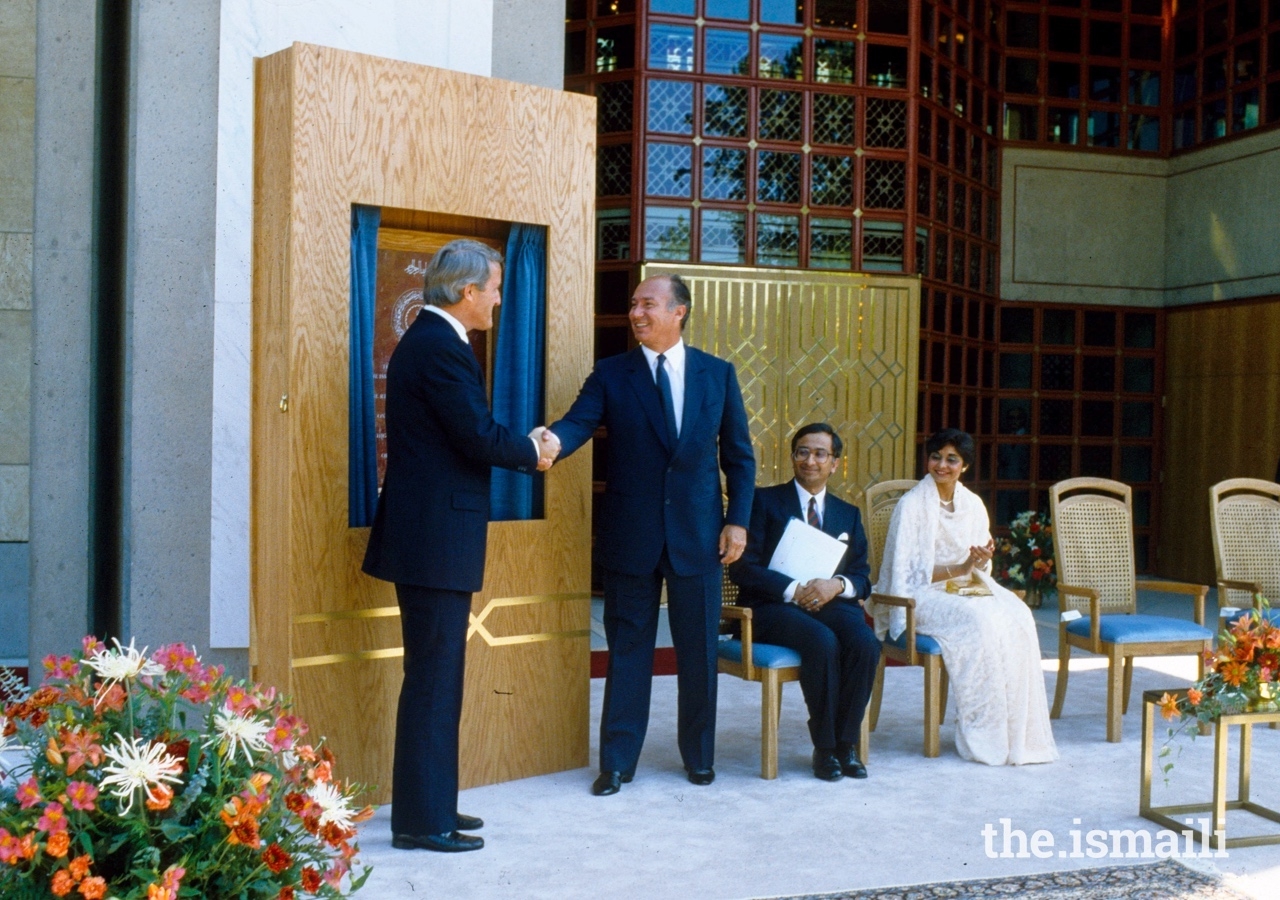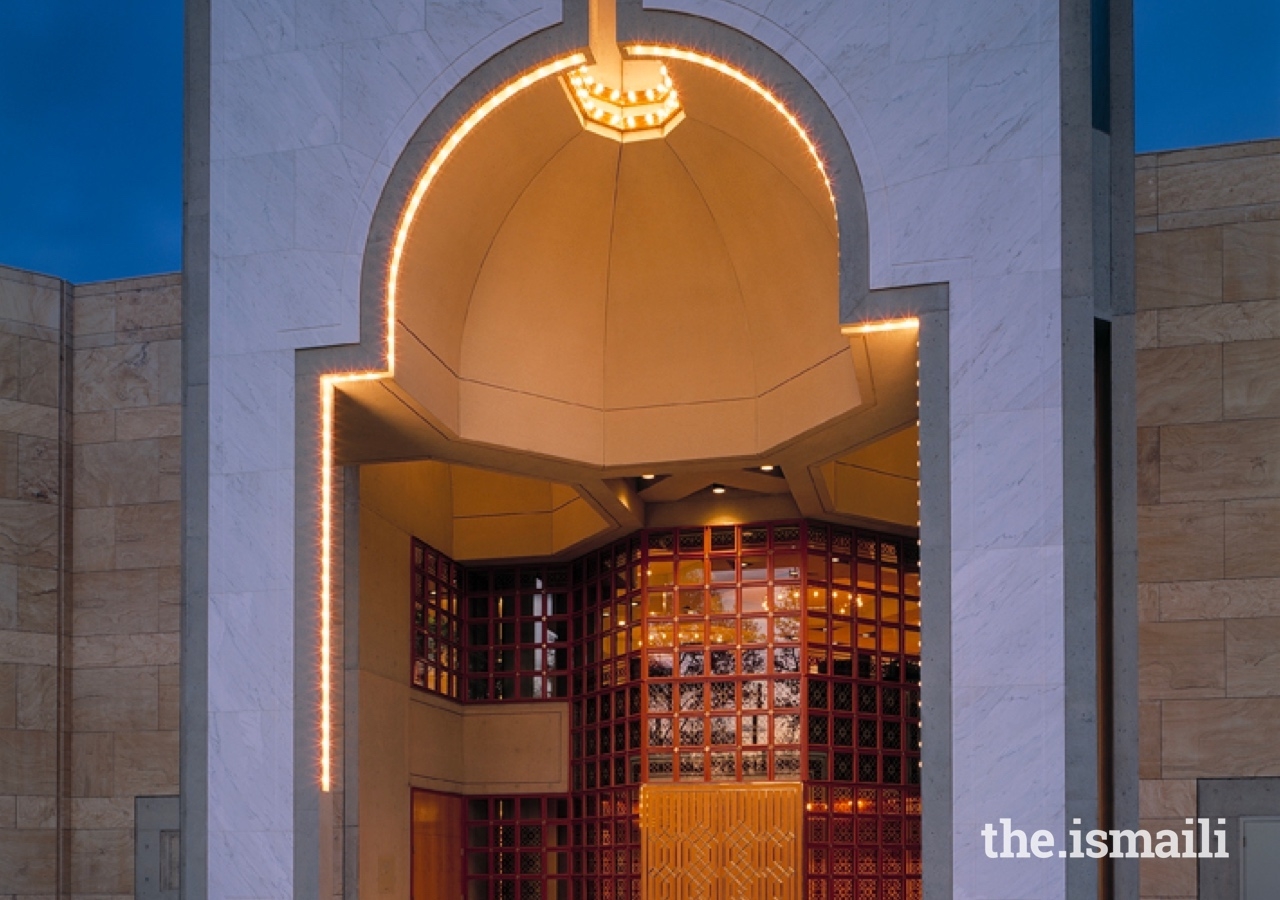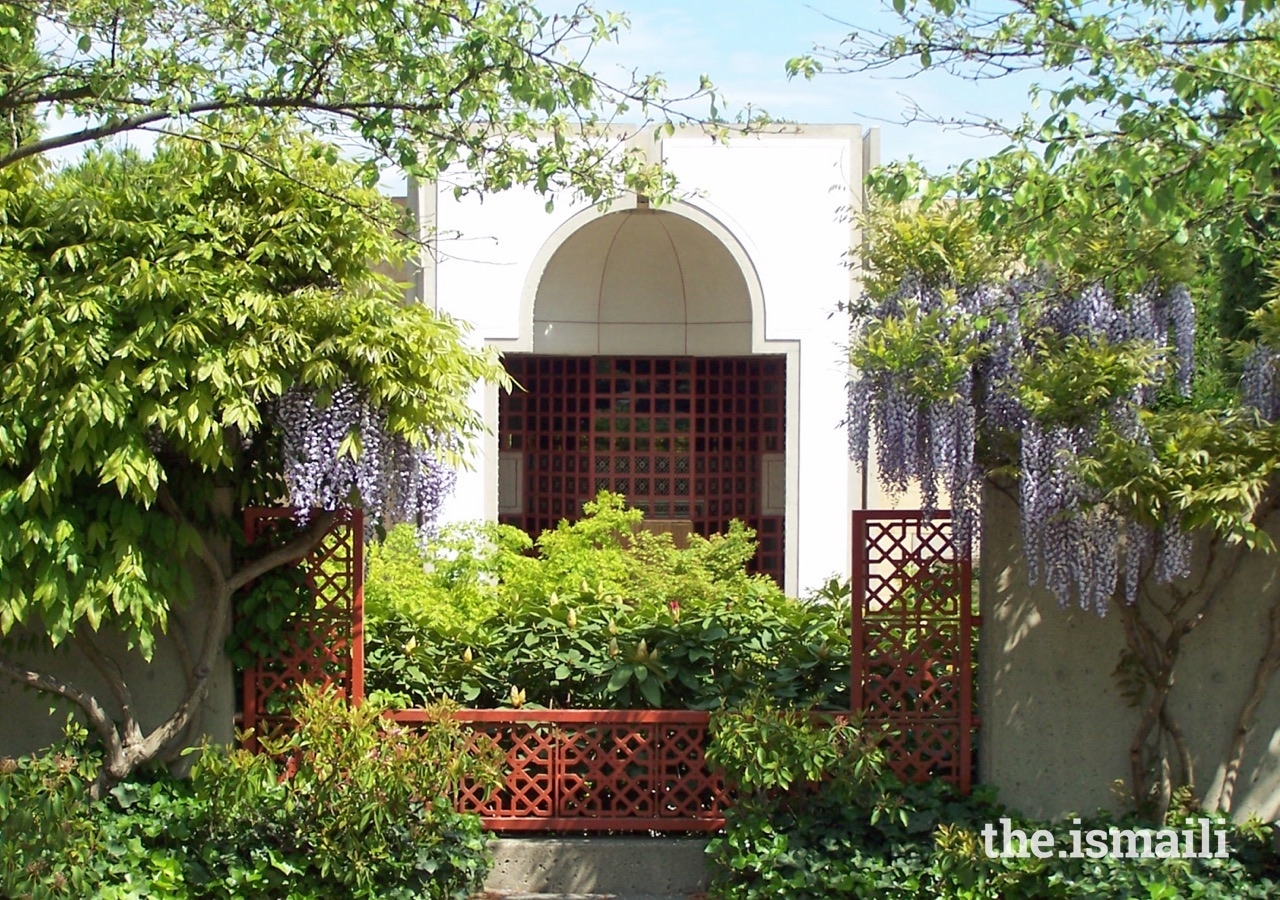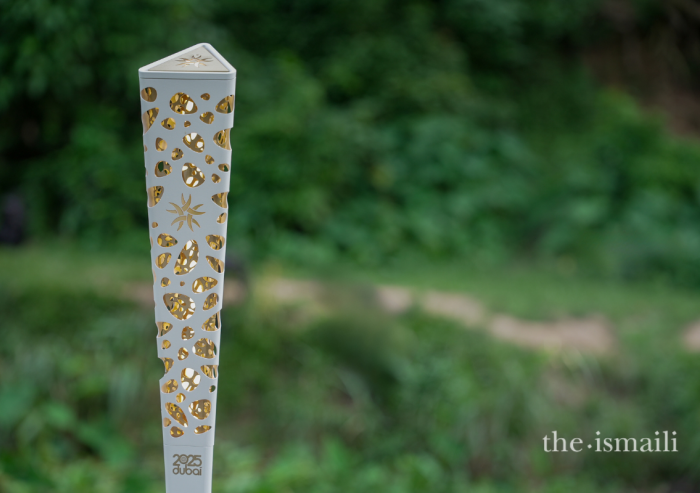The Silver Jubilee project represented the first purpose-built Jamatkhana in North America, and the second Ismaili Centre in the Western world, following the Centre in London, opened earlier in the same year.
In an online interview to mark the occasion, to be aired tonight on The Ismaili TV, the former Prime Minister will share his thoughts and vision for the future of Canada post-Covid, and the role that each individual might play in realising it. During the interview, he reminisced on the inauguration of the building 35 years ago, an event that has lived in the memory of many Ismailis until today.
“It was a joyous day — the Aga Khan was opening a very splendid Ismaili Centre, and I was honoured to be there on behalf of the government of Canada to signal our support, not only for the Centre, but for the tremendous contributions that the Ismaili community was making to Canada and continues to make.”
The site in Burnaby, to the east of Vancouver, was acquired in 1979, for it was here that the first Ismaili congregation was established in Canada.
A firm of architects, led by the well-known Vancouver architect Bruno Freschi, was commissioned to prepare the plans for the building. In addition to meeting the needs of the Ismaili community, the new Centre would also need to blend harmoniously and discreetly with the environment, yet add another dimension to the varied architecture of the area.
The geometrical symmetry and setting of the building, with its well-laid garden, provides a serene and peaceful space for contemplative spiritual experience. The sound of moving water, the touch of varied surface textures, the richness of colour and the play of light and shade upon the vision, the scent of plants are all reminiscent of the finest Islamic architectural traditions.
At the opening ceremony, Mawlana Hazar Imam outlined his vision for the Centre.
“This will be a place of congregation, of order, of peace, of prayer, of hope, of humility, and of brotherhood,” he said. “It has been conceived and will exist in a mood of friendship, courtesy, and harmony. While the building will be an important focus in the social and religious life of the local Ismaili community in Burnaby, it is my hope, a very deep hope, that it will become a symbol of a growing understanding in the West of the real meaning of Islam.”
It quickly became a central focal point for the Jamat in British Columbia, and a launchpad for the community to make a meaningful contribution to the social, economic, and cultural landscape of Canada. Over time it also took on an ambassadorial function, facilitating new relationships and an improved understanding within Canadian society of both the Shia Ismaili Muslim community and the wider Muslim ummah.
This was in keeping with the vision of the network of Centres around the world. After London and Vancouver, Ismaili Centres have since been established in Lisbon, Dubai, Dushanbe, and Toronto, with one more currently in the design phase, to be built in Houston. Each is a symbolic marker of the permanent presence of the Ismaili community, and all share certain common aspirations.
Since its opening, the Centre in Vancouver has welcomed an array of social, political, and business leaders, crossing the lines of political affiliation, culture, and religion, and has provided a meaningful setting for the promotion of dialogue and the sharing of ideas.
In the run-up to the Vancouver 2010 Winter Olympic Games, Her Excellency the Right Honourable Michaëlle Jean, former Governor General of Canada, led some 200 British Columbian youth in a Truce Dialogue. Soon after, the Chief Justice of Canada, Beverley McLachlin, was a guest at a luncheon held at the Centre, where she spoke about improving access to justice and the role of alternative dispute resolution.
More recently, the building and its gardens have participated in the Indian Summer Festival, and hosted eminent speakers including Chancellor of the University of Calgary and former astronaut Robert Thirsk, and President of the University of British Columbia Professor Santa Ono.
This spirit of openness, of sharing knowledge, cultures, and opinions that has taken place at the Centre is reflected in wider Canadian society.
“This is all part and parcel of the puzzle, the mosaic called Canada,” said former Prime Minister Mulroney. “That’s why everyone is so valuable to us, and that’s why we welcome the ideas, and the attitudes, and the views of people from afar who come to find succour and sanctuary and prosperity in Canada for their families.”
Beginning in the early 1970s, countless members of the Ismaili Jamat from East Africa, Central Asia, and South Asia have sought this sanctuary, many of whom have since made Canada their home, settling in the major provinces of Ontario, Alberta, and Quebec, but also in every other province across the country.
“They have brought their sense of industry, their brilliance, their love of family, their loyalty to Canada, their loyalty to their faith, and they’ve contributed enormously because of their entrepreneurship, to Canada’s prosperity,” said Mr Mulroney.
“And so if you were looking for a near-perfect example of the kinds of immigrants that Canada needs, we’ve just defined them, and that’s the Ismaili community.”
--
The full interview with The Right Honourable Brian Mulroney will premiere on The Ismaili TV tonight at 8PM Eastern Daylight Time / 5PM Pacific Daylight Time.
A repeat of the programme will be screened at 7AM, 1PM, and 7PM British Summer Time / 10AM, 4PM, and 10PM Gulf Standard Time.










